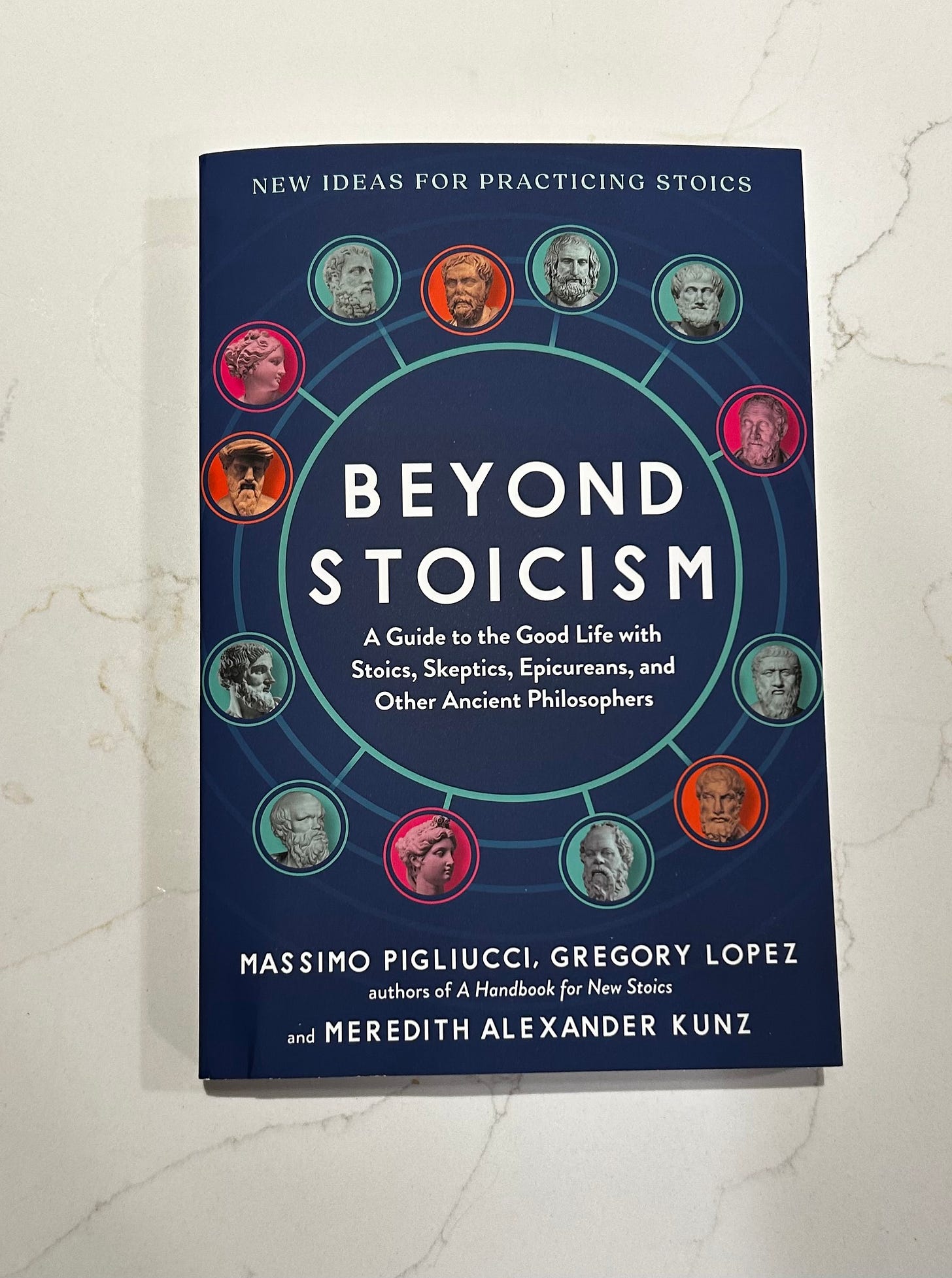Hi all,
Welcome to another edition of Sweet Bites, Mind Candy’s bite-sized newsletter with thought-provoking finds to send you into the weekend with.
Any of the below bites resonate? Hit the reply button and let me know.
🍰 Mini Bite
“I’ve Got Enough”
The famed writers Joseph Heller (Catch-22) and Kurt Vonnegut (Cat’s Cradle) were once at a billionaire’s party on Shelter Island in New York.
As Vonnegut retells, Heller and he were at the party when Vonnegut turns and says to him, “Joe, how does it make you feel to know that our host only yesterday may have made more money than your novel ‘Catch-22’ has earned in its entire history?”
“The knowledge that I’ve got enough,” responded Heller.
It’s easy to always want more—we’re literally told it everywhere. We’re told we should want a better car, a nicer house, a better job or promotion.
The majority of us fall into the trap that Eric Weinar calls “Just-a-Bit-More-ism,”1 the idea that a bit more of something will make us happier.
But few of us ever stop to think about what amount would actually make us happy. Do we want the better car if it means having to pay three times more in payments and insurance? Would a nicer house truly make us happy or would we have to sacrifice even more time with our family to afford it? Who says a new job or promotion will make us happier? Sure, we’ll make more money and maybe get a new title but at what cost to our time? Our sanity? Our health?
If we don’t know where the line is, enough never comes, the goalposts always move just a bit further.
And this does not mean to not be ambitious, on the contrary, Heller was a famed writer who found great success. But there is a difference between allowing oneself contentment and never being satisfied, always looking for more.
“All the greatest blessings create anxiety, and Fortune is never less to be trusted than when it is fairest,” wrote Seneca. “To preserve prosperity we need other prosperity, and to support the prayers which have turned out well we have to make other prayers. Whatever comes our way by chance is unsteady, and the higher it rises the more liable it is to fall.”
Or to summarize it more succinctly, Cicero simply wrote: “Nothing troubles you if you don't desire it.”
When we have enough, we know where our line is, and like Heller, we can simply say, “I’ve got enough.”
📚 This Week’s Monday Meditation
Happiness Paved in Virtue
Mind Candy is a newsletter on practical philosophy and human flourishment—aka how to live “the good life.” Each month we tackle a new theme.
✏️ This Week’s Wednesday Wisdom
Enough, Discipline, & Pleasure vs Happiness
Welcome to Wednesday Wisdom, our 3x3 Newsletter where I distill worldly advice for better living with 3 quotes, 3 observations, and 3 questions.
🎥 Video on Happiness
In the below video by
, who runs Big Think’s mini philosophy section explores the history of philosophy and some of the themes that run throughout as it pertains to happiness.📖 Book I’m Reading
, Gregory Lopez, and Meredith Alexander Kunz. I was sent an advanced copy of this and so far have been loving it. Using ancient philosophy as its backbone, the authors dive into some of the questions we’ve explored here and people have been asking for over 2,000 years—what makes us happy? How do we handle turmoil? What amount of pleasure is right?
If you haven’t already, pre-order your copy, it’ll be released in early January.
🦉 Wisdom
“Keep in mind that desire presumes your getting what you want and that aversion presumes your avoiding what you don't want, and that not getting what we want makes us unfortunate, while encountering what we don't want makes us miserable.”
Epictetus
Source: How to be Free. II.
Thanks for reading. Did any of these bites resonate with you? If so, hit reply and let me know.
If this was forwarded to you, click below to sign-up for future editions.
Until next time,
D.A. DiGerolamo
We are a participant in the Amazon Services LLC Associates Program, an affiliate advertising program designed to provide a means for sites to earn advertising fees by advertising and linking to Amazon.com.
The Socrates Express
















